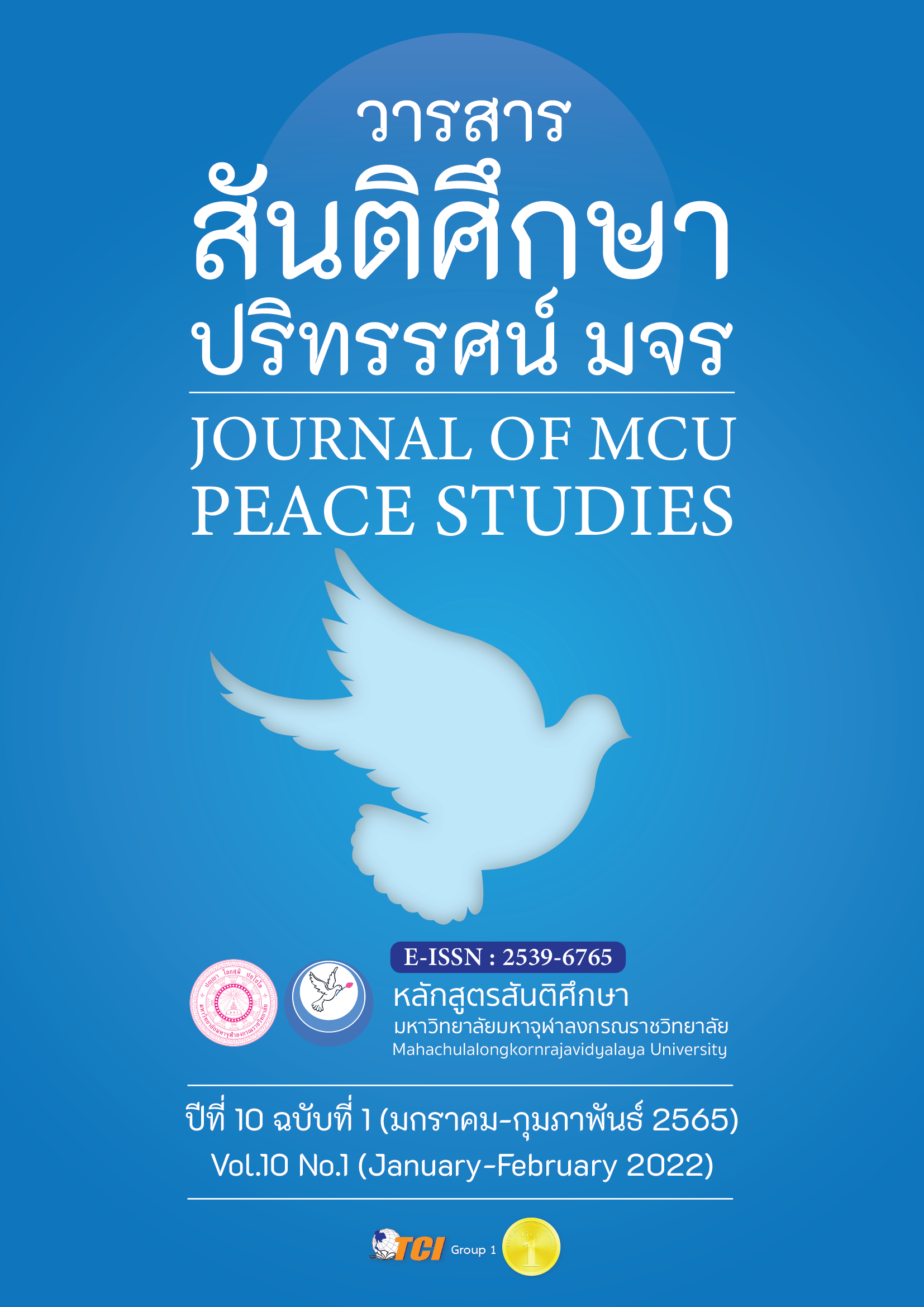The Development of Academic Leadership Skill Training Package for Teachers in Basic Education Schools
Main Article Content
Abstract
The purposes of this research are: 1) to develop an effective academic leadership skill training package for teachers in basic education schools, and 2) to evaluate the effectiveness of the academic leadership skill training package for teachers in basic education schools. The population chosen with the cluster sampling method included 24 teachers at Khao Wittayakarn School under the Secondary Educational Service Area Office 27. The research tools consisted of: 1) seven sets of academic leadership skill training package, 2) suitability evaluation form of the academic leadership skill training package which was a five-point rating scale evaluation form divided into two parts, firstly sentiment level and secondly evaluation of the consistency of the curriculum, 3) academic leadership evaluation forms which included self-evaluation and peer-evaluation forms with 20 questions per form, 4) performance of the activities evaluation forms for individual and group activities, and 5) satisfaction survey form which contained five-point rating scale and open-ended questions for additional suggestions parts. As for statistical tools, percentage, mean, standard deviation, and t-test were used to evaluate the results before and after the training (dependent samples).
The results are as the following:1) The academic leadership skill training package for teachers in basic education schools consisted of seven units, with 21 hours of training period. The suitability of the training package, categorized into elements, showed overall value at high ( = 4.28), and suitability of the training package, divided into items, had overall value at high (
= 4.08) 2) After using of the academic leadership skill training package for teachers in basic education schools, the results were as follows: 1) The evaluation of academic leadership of teachers in basic education schools done by their supervisors and peer teachers gave high value (
= 4.52) before the training, and there was a significant increase of the value after the training at .05. 2) From the satisfaction survey on the academic leadership skill training package done by participants, overall value considering by aspects, was at high (
= 4.24), and overall value considering by items, was at high ( = 4.24). and 3) The evaluation for overall performance during the activities of the academic leadership skill training session was high (
= 4.40).
Article Details

This work is licensed under a Creative Commons Attribution-NonCommercial-NoDerivatives 4.0 International License.
Views and opinions expressed in the articles published by The Journal of MCU Peace Studies, are of responsibility by such authors but not the editors and do not necessarily reflect those of the editors.
References
Boonruang, S. (2016). Development of a Self-training Package on Self-care of Diabetic Patients. (Master’s Thesis). Burapha University. Chonburi.
Dale, T.E. (1990). Reframing Reform. Educational Leadership, 47(8), 6-12.
Educational Testing Bureau. (2010). Guidelines for the Development of Quality Assurance Systems in Educational Institutes. Bangkok: Agricultural Cooperatives Congregation of Thailand.
Hannakin, P. (1986). Principles of School Administration. Bangkok: Thai Wattana Panich.
Lee, M., & Wong, A. (2006). Paper for Presenting on Asean New-Wave Leadership Development Training Program. Singapore: Civil Service College.
Office for Accreditation and Quality Assessment. (2010). Standards, Indicators and Consideration Criteria for External Quality Assessment. Basic Education Level, Round 2 (2006-2010). Bangkok: Office for Accreditation and Quality Assessment.
Phatthanan, N. (2012). The Development of Using Training Packages Experiential Learning Process to Enhance the Public Consciousness of Red Cross Youth Volunteers. (Doctoral Dissertation). Graduate School: Srinakharinwirot University. Nakhon Pathom.
Plengnuch, N. (2011). Curriculum Administration. Khon Kaen: Khon Kaen University.
Prachnakorn, K. (2007). Development of Training Courses to Enhance Competency of Civil Servants at the Center for Drug Combat Operations Center. (Doctoral Dissertation). Graduate School: Srinakharinwirot University. Nakhon Pathom.
Sangcharoen, K. (2010). Developing a Model of Non-formal Education Training to Enhance the Capacity of Teachers in Community Learning Centers. Doctoral Dissertation). Graduate School: Chulalongkorn University. Bangkok.
Sawasdibunya, N. (2010). Training Model for The Head of Department to Develop Training Programs on Problem-Based Learning Instruction. (Doctoral Dissertation). Graduate School: King Mongkut's University of Technology North Bangkok. Bangkok.
Thanaruengsakulthai, S. (2010). Development of A Training Course for Fixed-time Industrial Technicians to Enhance Teaching Competency. Bangkok: Chulalongkorn University.
Thaweeuthit, C. (2015). A Model for Instructional Leadership Development for Administrator at Secondary School Under the Office of the Basic Education Commission in the Northeastern. (Doctoral Dissertation). Graduate School: Sakon Nakhon Rajabhat University. Sakon Nakhon.
Thongrot, P. (2008). 10 Symptoms Requiring Major Surgery in Thai Education. Journal of Teache’s Professional Development, 108(2), 27-33.
Wannasilp, K. (2019). Development of an Integrated Teacher Training Curriculum on Conducting Research in the Classroom. (Doctoral Dissertation). Maha Sarakham Rajabhat University. Maha Sarakham.
Zentis, N.L.R. (2007). The impact of –degree feedback on leadership development. (Doctoral Dissertation). Capella Univercity. USA.


